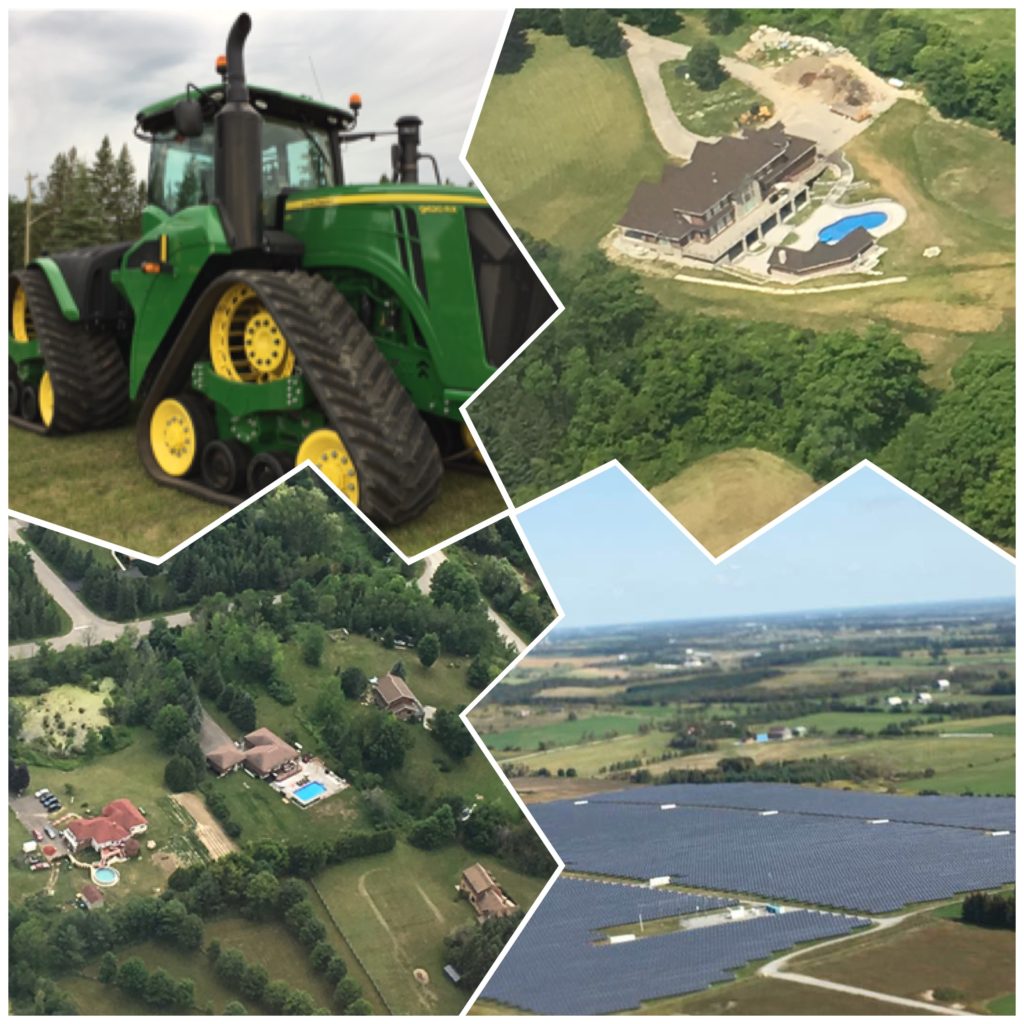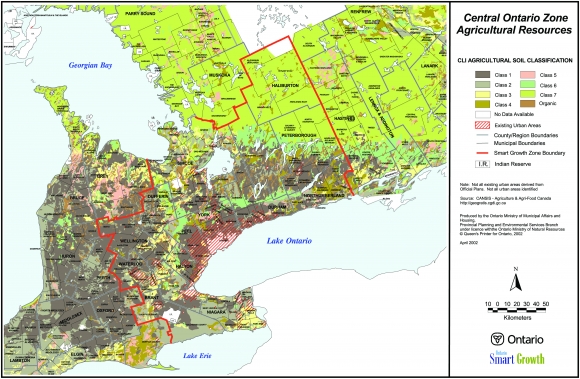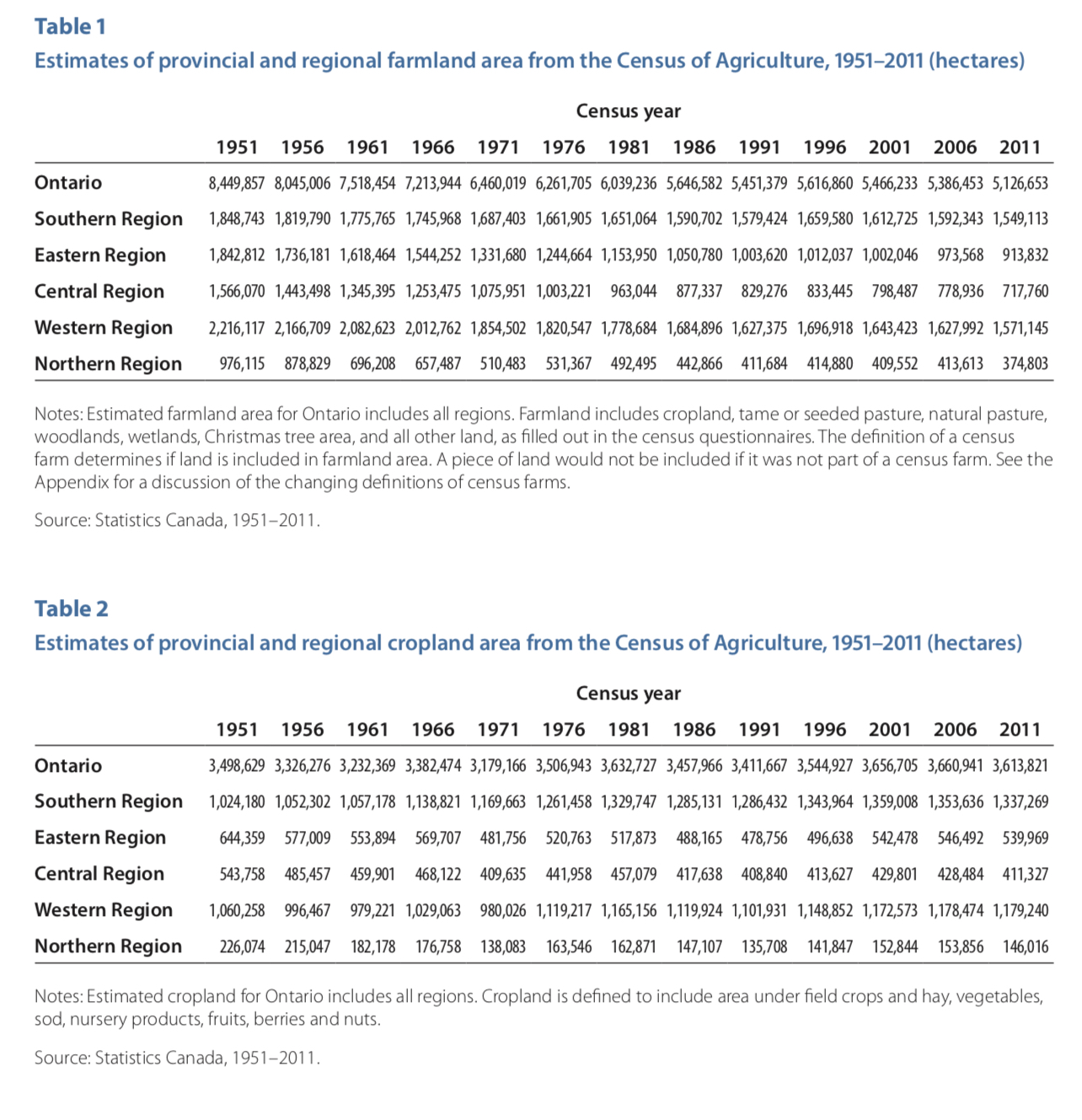
An agricultural lobby group wants to stop the soon to be built Pickering Airport and instead repurpose the land to agribusiness on the grounds that Toronto’s food security is at risk. Is this just another attempt by a lobby group to hoodwink our politicians with a billion dollar land grab? Or does Toronto have a food security problem and would stopping an airport help or aggravate it?
On the surface the claim that Toronto, sitting in the heart of a million acres of high quality farmland, has a food security problem seems ludicrous. Today, thanks to our capably private farmers and a modern transportation infrastructure linking us to the world, Canada is an agricultural super power, one of the worlds largest food exporters. Canadian farms and Agri-food businesses, directly or indirectly, employees 1 in 8 Canadians and generates over $160 billion a year in sales. But is this farm economy threatened by Ontarios urban sprawl?

Thanks to its mild climate, Southern Ontario plays an important role in Canada’s agricultural success with almost half of its farmland being of the highest quality, called class 1. But as Ontario’s population has grown, some of this farmland has been consumed by urban sprawl. As plans and requirements for the new airport have become clearer, half of the 18,600 acres originally set aside 45 years ago for an airport has been diverted to the new rouge national park. In the interim the remaining 9600 acres intended for airport development is currently leased out to a handful of tenant farmers who last year grew $3.8 million dollars in produce. Building the airport and associated employment zone on 5900 of the remaining 9600 acres will reduce this crop land by more than half.
On the surface, trading $2 million dollars a year in crops for an airport expected to generate 400 times that and create 15,000 good jobs is an easy choice. Pickering airport will add billions of dollars to Canada’s GDP (Gross Domestic Product), cap jet noise over Toronto and improve the efficiency of our aviation infrastructure. So is the food security issue simply a fig leaf cover for NIMBYs (Not In My Back Yard). Are a handful of interim lease holders trying to hoodwink our politicians to make a killing from cheap government land leases, or is there a deeper story?
As the Toronto region has grown dramatically in population, land around the city has been steadily diverted, and not just to subdivisions and supporting road and power infrastructure. As the value of land around Toronto has skyrocketed, this important resource is being purchased and repurposed by wealthy residents as hobby farms, or turned into impressive estate homes, sometimes referred to as McMansions. Attempts to manage this urban sprawl has also seen large chunks of agricultural land, while often still producing crops, repurposed as parkland, and Torontos famous Greenbelt.
All of this activity has created a startling paradox. Land classified as farmland has seen a 40% reduction in Ontario since 1951. ( source statistics Canada see table 1 ). Paradoxically the acreage under cultivation has actually increased by 3% over the same time period and yield per acre has jumped. The heart of this paradox is the replacement of the small family farm with larger more efficient capital intensive farming operations. Across Canada the small family farm, once the heart of the economy has been fundamentally replaced.

Since Canada’s creation, our population has been steadily migrating from farms into our cities in search of a higher standard of living. Today that migration is nearly complete with 4 in 5 Canadians living in a city. Along the way, woodlots and wetlands, once an important part of a family farm, have been reclassified and repurposed. Despite this changing farm labour pool, thanks to improving technology, transportation infrastructure, and access to capital, Ontario’s farms are becoming larger and more efficient every year. But will replacing 5900 acres of farmland with a new airport help or hurt Our food quality and affordability?
Pickering Airport will relieve the congestion at Pearson airport before that airports limited capacity blocks Torontos GDP growth and restricts the free movement of goods and people. Pickering Airport will be an efficient two-way gateway to the world for both people and time-sensitive products. With accessible aviation infrastructure, our agricultural businesses will have an improved gateway to a world of new markets for time sensitive fresh produce. At the same time, foreign producers will have easier, cheaper access to the Toronto regions consumers. A big win for the Toronto regions food variety and accessible. Reduced operating costs of cargo operation at Pickering airport could also reduce the cost to the consumer of some products.
A balanced land management approach between the needs for high quality-jobs, homes, infrastructure, recreational parkland and locally-grown farm produce needs to be at the heart of Toronto’s booming growth. Access to all the food in the world will not help feed a jobless person or his/her family if they can not afford it. Just as turning all of the new Rouge urban park over to private for profit farming does not improve our quality of life. The key is balance. Only with well-paying jobs can families be lifted out of poverty and afford quality food and homes. Only with an efficient transportation system can high quality fresh produce from Ontario or from around the globe be affordable and accessible to everyone. The question of food security goes hand in hand with fighting poverty and freedom of movement. Pickering airport will help our food security by fighting poverty with 1000s of high quality jobs and by improving our freedom of movement. Transportation efficiency improves the affordability and accessibility of food.
Toronto’s growth and the change it brings can be hard for many. It is time for all of us to ask some hard questions of those profiting from the status quo and those opposing the balanced growth represented by the new airport. Turning our valuable land resources into McMansions for the privileged few or dedicating it all to a handful of farming businesses will not reduce poverty or feed a struggling family. Providing thousands of high quality jobs in an airport employment zone will.
Building Pickering Airport will improve Toronto’s food security while providing land for recreational parks and farmland in and around the new airport. Building Pickering Airport must be an urgent priority for all of Toronto’s residents and our politicians.
An excellent assessment of the farms for planes issue.
I have been a supporter of the Pickering airport for more years than I care to remember and have even offered to exchange my meager piece of Canada for something closer to the site …… no one ever takes my offer, after reading this article I have a better understanding of why.
Pickering is the poor neighbor of the GTA, as is the Durham region.
This airport will bring new jobs and investments to our area, it is needed now.
JUST DO IT!
Yes yes yes. Good article and some very good arguments in favour of the new airport.
This is a very flawed argument. Does no one see the bigger paradox of placing an airport on class 1 farmland? Right beside existing working farms? Most people would prefer food free of jet fuel exhaust and clean air to breathe. This is the opposite direction that the new report on climate change on Canadian communities is encouraging us to take. What kind of legacy do we want to leave for future generations? Let’s protect our land ,our water our air. I support farmers and land to grow food for a food secure future.